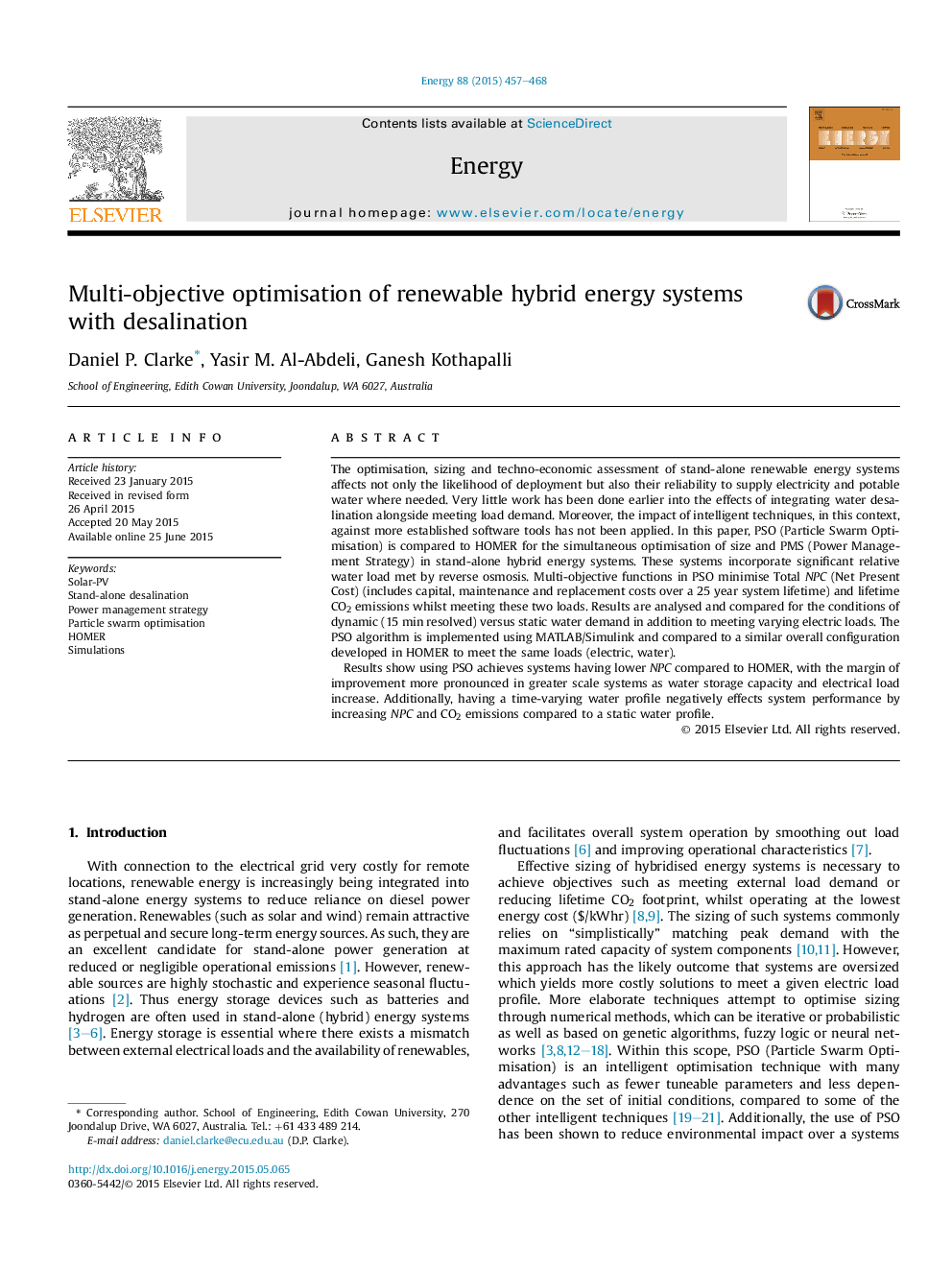| کد مقاله | کد نشریه | سال انتشار | مقاله انگلیسی | نسخه تمام متن |
|---|---|---|---|---|
| 1732158 | 1521458 | 2015 | 12 صفحه PDF | دانلود رایگان |
• Stand-alone (PV, H2) energy systems to meet both electric load and water desalination are studied.
• Lab data, simulations and dynamic data (loads: electricity, water) support optimisations.
• Performance and system sizing are compared: intelligent methods (PSO) vs desktop tools (HOMER).
• PSO optimised PMS yields lower Net Present Cost ($), over both static and varying water demand.
• Effects on lifetime CO2 emissions using PSO also appear generally lower.
The optimisation, sizing and techno-economic assessment of stand-alone renewable energy systems affects not only the likelihood of deployment but also their reliability to supply electricity and potable water where needed. Very little work has been done earlier into the effects of integrating water desalination alongside meeting load demand. Moreover, the impact of intelligent techniques, in this context, against more established software tools has not been applied. In this paper, PSO (Particle Swarm Optimisation) is compared to HOMER for the simultaneous optimisation of size and PMS (Power Management Strategy) in stand-alone hybrid energy systems. These systems incorporate significant relative water load met by reverse osmosis. Multi-objective functions in PSO minimise Total NPC (Net Present Cost) (includes capital, maintenance and replacement costs over a 25 year system lifetime) and lifetime CO2 emissions whilst meeting these two loads. Results are analysed and compared for the conditions of dynamic (15 min resolved) versus static water demand in addition to meeting varying electric loads. The PSO algorithm is implemented using MATLAB/Simulink and compared to a similar overall configuration developed in HOMER to meet the same loads (electric, water).Results show using PSO achieves systems having lower NPC compared to HOMER, with the margin of improvement more pronounced in greater scale systems as water storage capacity and electrical load increase. Additionally, having a time-varying water profile negatively effects system performance by increasing NPC and CO2 emissions compared to a static water profile.
Journal: Energy - Volume 88, August 2015, Pages 457–468
